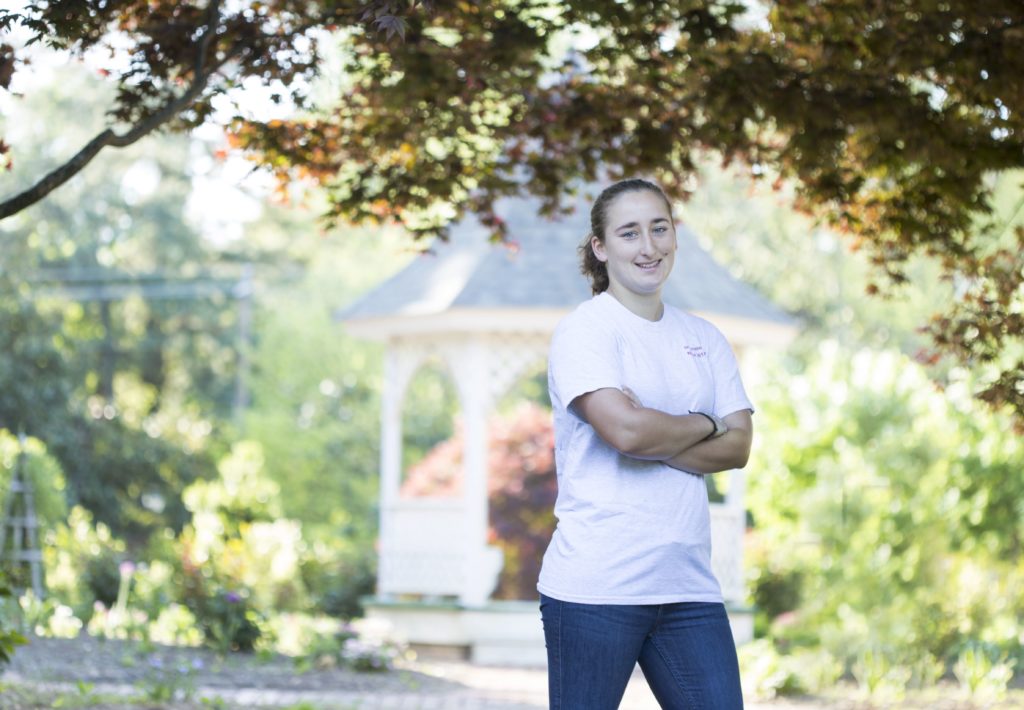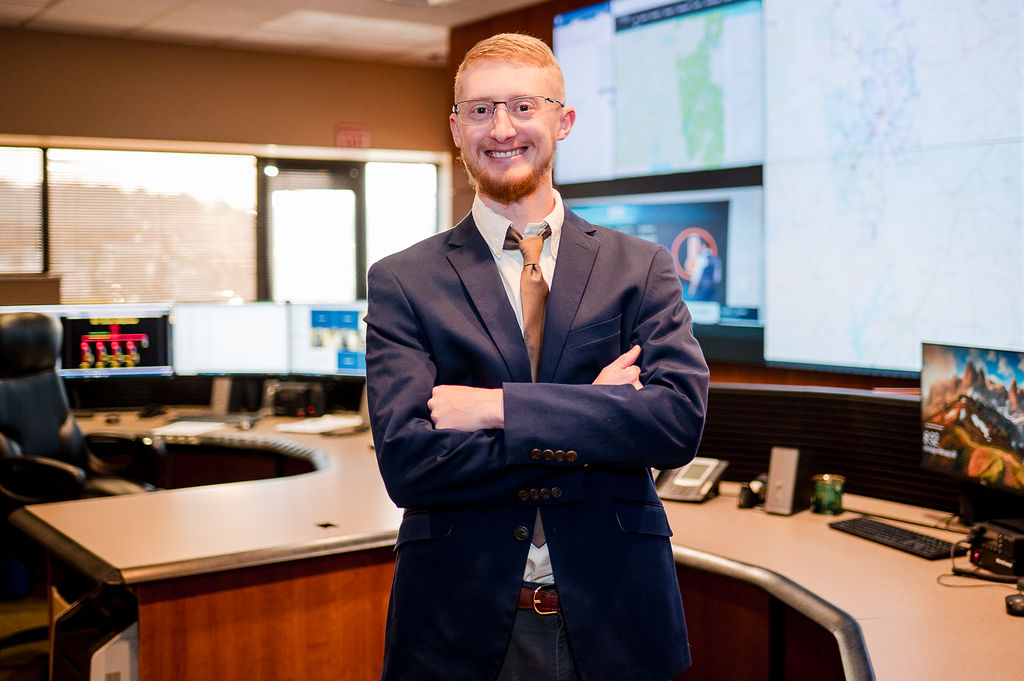
Franziska Bremm likes the University of West Georgia.
The Germany native is a junior majoring in biology and a star Wolf on the women’s golf team for three years running.
“I like the campus, I like the faculty, and I like the golf team,” Bremm said. “It’s just perfect here.”
UWG’s College of Science and Mathematics (COSM) hosts students from nations as diverse as India, Nigeria, China, Kenya, South Korea, Macedonia and well beyond. Bremm is one of more than 20 international students enrolled in programs housed in COSM.
To hear Bremm describe it, the most surprising thing about Carrollton is the warm and inviting hospitality.
“People are much friendlier here than at home,” Bremm said with a laugh. “The first month I was here, it was very strange for me, as everyone was asking how I was doing. It’s very different.”
Dr. Lok Lew Yan Voon, dean of COSM and professor of physics, views international students as vital to his college.
“International students enrich both the academic and cultural fabric of the university,” he said. “They provide a different perspective to the community. The international experience and exposure on our campus is important for us.”
Benefits of UWG as a Home to International Students
Paul Sargent, assistant director at the Department of International Student Admissions and Programs, works diligently to attract international students to UWG and to shape their overall experience. When asked what attracts international students to a small city in the west Georgia area, he notes Carrollton’s economy and culture.
“Compared to other college towns, which are often quite expensive, Carrollton is a cost leader for international students,” Sargent said.
Along with cost, quality and value benefits, UWG offers a suburban setting and a beautiful pedestrian campus.
“Most international students don’t have cars,” Sargent said. “At their home universities, taking a train between classes can be inconvenient whereas at UWG, students can stroll across campus, and their next class is just ahead.”
To facilitate transportation needs common to international students, UWG also offers shuttle services. Newly arriving students not only receive a shuttle from the airport, but a shuttle is available to local shopping areas twice a week to purchase food and other necessities.
The ability to keep students on campus, Sargent explained, positions UWG to engage them with lively events and recreation in a vibrant and safe environment.
In turn, UWG and the surrounding community benefit from welcoming international students, particularly as we continue to see ourselves as global citizens. Sargent noted that many people live in a community with little outside exposure apart from a family vacation to a neighboring state, making such growth of awareness a challenge.
“By bringing the international students here, our student body benefits through exposure to diverse mindsets and outlooks on a variety of topics,” Sargent explained.
While he wishes all UWG students could study abroad, he recognizes that is not feasible. Bringing international students here, he said, is the next best thing to facilitate that kind of cross-cultural exchange.
Other advantages to hosting international students are even more pragmatic.
“The economic effect of international recruitment in America is huge,” Sargent added, noting that many of them not only pay out-of-state tuition rates, but often enter the U.S. with only their personal contents within a small bag.
“They arrive with enough financial ability to buy their furnishings and all the daily things they need.”
Why Do International Students Love UWG?
While Brandy Rivera’s formal title is that of international student services coordinator and club adviser, Sargent calls her “the coordinator of fun.”
Rivera and her team coordinate activities that range from leadership development experiences to a Halloween trip to Six Flags Over Georgia for Fright Fest. Other events include trips to the mountains of north Georgia and even an alternative spring break trip to Miami, Fla.
“We create programming for the students to allow them to take part in unique events off campus and learn about popular American experiences,” Sargent said.
And while all of UWG is welcoming to students, COSM may have a unique asset in making international students feel so much at home. It’s their faculty members.
“We have so many international faculty within the COSM programs, it helps our students feel even further integrated,” Sargent said. “They are able to learn from a knowledgeable professor who is also able to relate to them on an international level. COSM has done very well to create a warm environment that is open and receptive to international students.”
While international student admissions and programs assists students with soft skills such as how to prepare for a job interview in the U.S., UWG’s career services team works with local companies in assisting to identify potential internships.
Deniza Gorgieva, for instance, is involved with several campus activities, such as the International Student Cluband Emerging Healthcare Leaders, in addition to her internship with Southwire Company.
A junior in chemistry from Macedonia, Gorgieva plans to continue her studies by later enrolling in medical school at Morehouse College or Emory University. As with many international students, she first heard of UWG through positive word of mouth experiences from other international students.
A Future of Unlimited Potential
Sargent and Rivera, along with department associate Danielle Plummer, work diligently to spread the word abroad regarding the many benefits in attending UWG.
“We are developing a more comprehensive strategy to enhance awareness of UWG,” Sargent said, noting the importance of digital, face-to-face and overseas outreach. “We are reaching out to embassy consulate officials and schools in various countries to tell the vibrant and transformative UWG story.”
UWG serves more than 13,500 students from across Georgia, 37 other states and 72 countries. Perennially ranked by U.S. News and World Report as a top national university, West Georgia offers 88 fields of study, including business, nursing, education, STEM, social sciences and the arts. It generates a regional economic impact of nearly $520 million and provides a safe, quality and affordable college experience that transforms lives.





